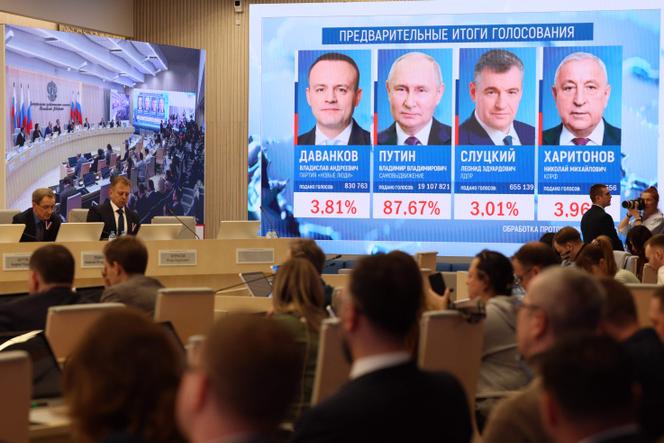
"Electoral sultanate": In Russian political jargon, the term refers to regions where the crudest frauds are practiced without any concern for plausibility or discretion, and which constitute an almost inexhaustible reservoir of votes for the Kremlin. Tatarstan, Kemerovo, Saratov, North Caucasus, Mordovia, Tuva: In all these territories, turnout as well as the scores attributed to the ruling candidates, whatever the type of poll, systematically exceeded 80%, and even approached 100%.
Reading the detailed results of the presidential election, which ended on Sunday, March 17, and which saw Vladimir Putin proclaimed the winner with 87.28% of the vote, revealed that the whole of Russia has been transformed into a huge "electoral sultanate." Without even mentioning the conditions under which the ballot was organized (dummy opponents, controlled media, repressive climate, whole sections of the population forced to vote) or the results of electronic voting, an impossible-to-analyze black box, fraud in polling stations appeared to reach unprecedented levels.
No region is spared from this observation, not even Moscow, where the authorities used to keep a certain discretion. A case in point was the Danilovsky District in the south of the capital. The area is known for its exorbitantly-priced covered market and its well-educated, affluent population. In polling stations where independent observers had managed to register, Putin's score hovered around 60%. In four polling stations where they were absent, it reached... 99%.
You have 80.04% of this article left to read. The rest is for subscribers only.